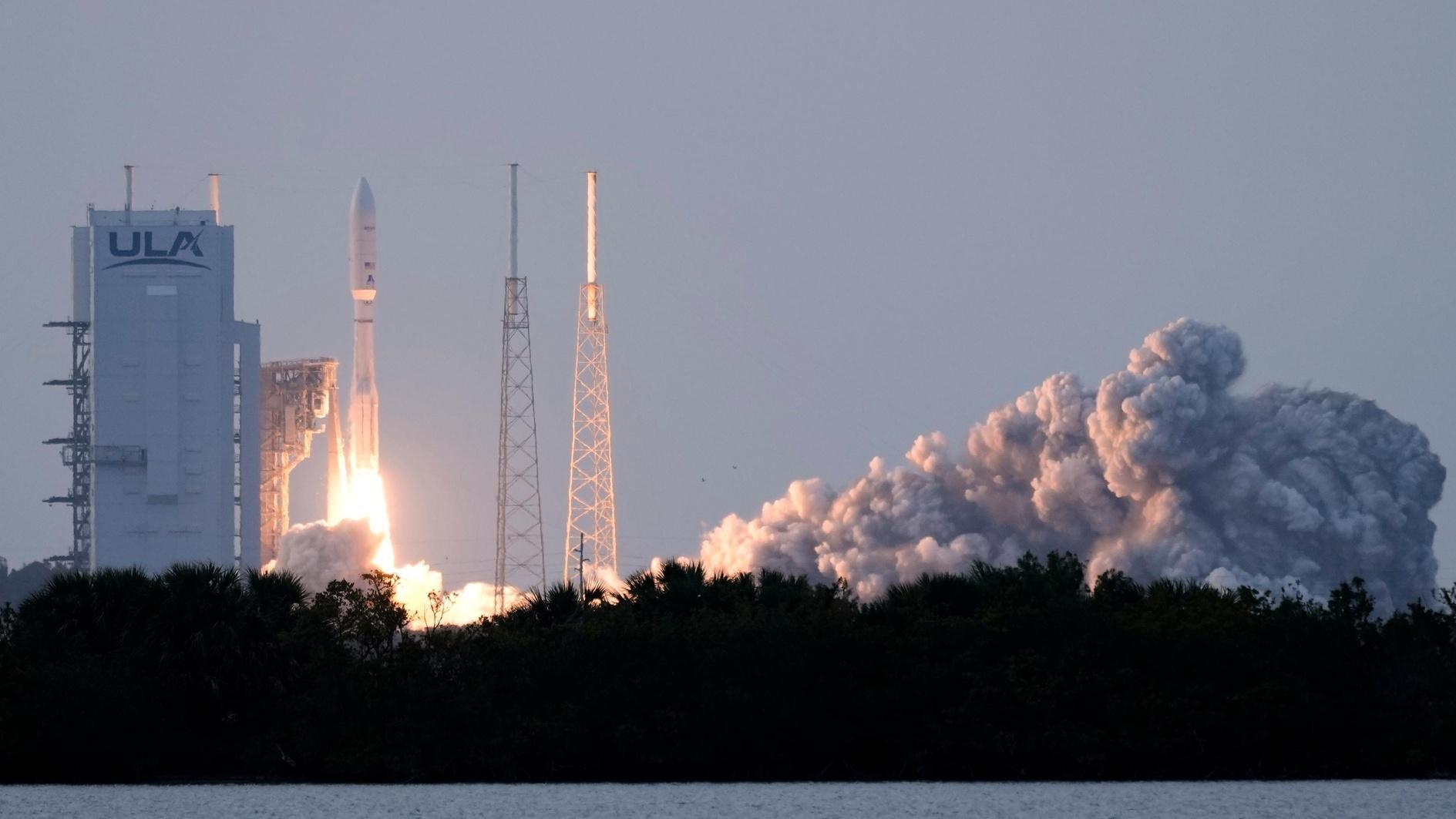
A United Launch Alliance Atlas V rocket with a payload of 27 of Amazon's Project Kuiper internet satellites lifts off from Launch Complex 41 at the Cape Canaveral Space Force Station, Monday, April 28, 2025.
Amazon has aunched its first batch of Project Kuiper internet satellites, marking the start of its push to rival Elon Musk's Starlink.
The mission, called Kuiper Atlas 1, lifted off from Cape Canaveral Space Force Station in Florida, aboard a United Launch Alliance (ULA) Atlas V rocket that carried 27 satellites into orbit.
Project Kuiper, a subsidiary of the online retail giant founded by Jeff Bezos, is playing catch-up with Starlink, SpaceX's sprawling network of internet satellites that has reshaped the sector and handed Musk significant geopolitical clout.
The $10 billion initiative plans to deploy 3,200 satellites into low Earth orbit, the region of space up to 1,900 kilometers above the planet, with hopes of going live later this year.
Pricing has not yet been revealed, but Amazon has pledged it will align with its reputation as a low-cost retailer.
With the launch, Amazon formally enters a crowded and fast-growing field that includes not just Starlink but other emerging players in the satellite internet race.
SpaceX launched the first batch of Starlink satellites in 2019 and now boasts more than 6,750 operational units, serving over five million customers worldwide, by far the sector's dominant force.
Amazon plans to accelerate launches in the coming months and years, with more than 80 flights booked through United Launch Alliance (a Boeing-Lockheed Martin joint venture), France's Arianespace, Bezos's own Blue Origin, and even Musk's SpaceX.
Its satellites will gradually join the swelling ranks of low Earth orbit, alongside Starlink, Europe's OneWeb, and China's Guowang